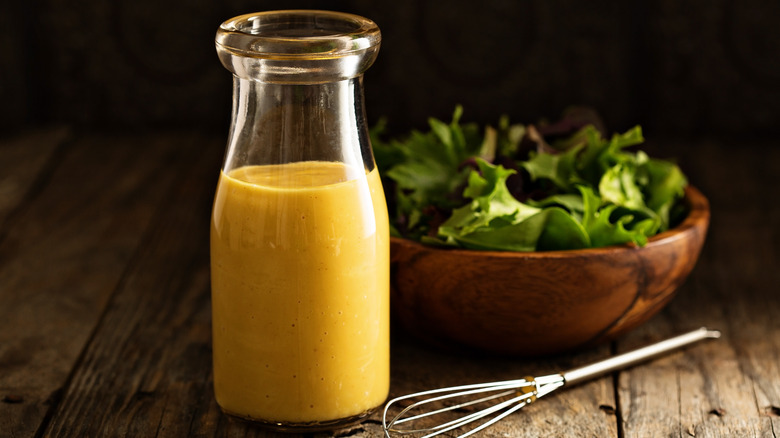The Real Reason The US May Soon Be Facing A Mustard Shortage
Yellow, brown, whole grain, Dijon, honey... the types of mustard you can find at your local grocer are endless — or at least they used to be. The last few months have seen shortages on all sorts of goods like baby formula, sriracha, and now the sinus-clearing condiment that graces hotdogs and burgers. While a Dijon scarcity in France was reported last month, the U.S. may be next to face a mustard shortage. But what's the real reason why?
Mustard's zing can be attributed to its unique recipe of whole or ground mustard seeds, vinegar, and spices (via MasterClass). Thick, yet thin enough to drizzle on whatever your heart desires, mustard has a sharp umami that's reminiscent of wasabi. Along with its uses as a condiment, it can be mixed into sauces, made into marinades, and used as a dressing. However, a shortage of mustard could threaten both the availability and price for American consumers.
Blame it on climate change
The last few years have been particularly disruptive for the supply chain, between the pandemic and now the Russian invasion of Ukraine. However, there's one factor that's really driving the potential mustard shortage and that's climate change.
According to Insider, most mustard production happens in Canada and France. However, seed yields have plummeted (between 28% and 50%) due to harsh growing conditions and drought. These atypical weather patterns are the result of climate change, which has the power to affect agriculture by negatively impacting crop health and yield, changing the duration of the growing seasons, and speeding crop maturity, reports NASA. Surplus or lack of adequate rainfall and suitable growing conditions can cause crop failure and leave cropland barren. This can lead to larger issues of food security.
Although smaller quantities of mustard are still being produced, U.S. consumers can expect that costs will skyrocket. Since seeds themselves are becoming harder for farmers to get their hands on, France24 reports that prices have more than quadrupled, impacting overall production costs by up to 16%. Now, the question is if mustard on its way to becoming more valuable than gold.

